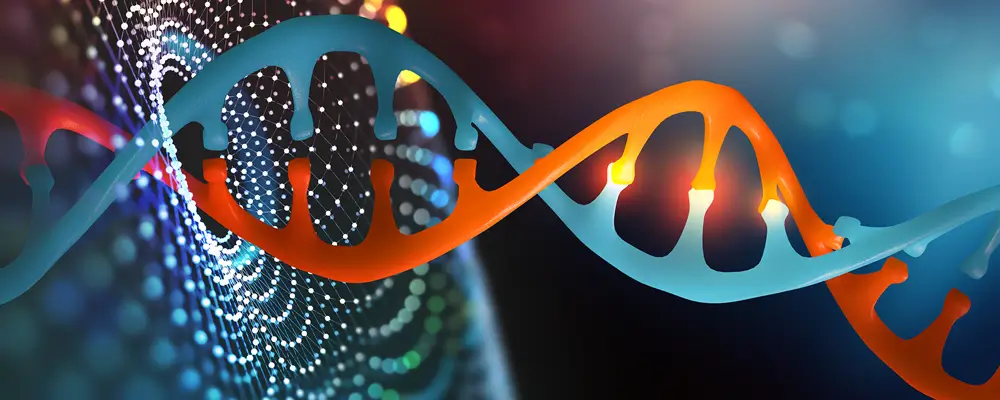IV. The Promise of Personalized Medicine
Welcome to what might be the most transformative frontier in modern healthcare—where AI meets personalized medicine. Imagine analyzing a book with 3 billion letters to find crucial "typos" that could affect someone's health. This is the scale of challenge that AI is helping us tackle in personalized medicine.
A. AI and Genomics: Tailoring Treatments to Individuals
The Genomic Challenge
Each of your cells contains approximately 3 billion base pairs of DNA. AI systems can analyze this vast amount of genetic data to:
- Identify specific genetic mutations affecting treatment response
- Predict medication reactions based on genetic profiles
- Match patients with optimal treatments
- Select promising clinical trials based on genetic markers
Data Growth Insight
Healthcare data doubles every 73 days—equivalent to drinking from an ever-expanding fire hose. AI helps make sense of this information tsunami, turning overwhelming data into actionable insights.
B. Predictive Healthcare: Stopping Diseases Before They Start
AI-Powered Prevention
- Risk Assessment: Pattern analysis across genetic, medical history, and lifestyle data
- Early Intervention: Identifying high-risk patients before symptom onset
- Continuous Monitoring: Real-time tracking through AI-powered wearables
C. Real-World Impact: The Diabetes Management Revolution
AI-Powered Diabetes Management
Modern AI systems act like a "tiny pancreas whisperer," providing:
- Continuous glucose monitoring and analysis
- Pattern recognition in individual responses
- Integration of diet and exercise data
- Predictive alerts before problems occur
Success Metric
Case studies show a 72% reduction in severe hypoglycemic events using AI-powered management systems—translating to fewer emergency room visits and reduced family stress.
The Promise and the Pitfalls
The Good
- Genetic analysis time reduced from weeks to hours
- Pattern recognition beyond human capability
- Consistent performance without fatigue
The Challenges
- Privacy concerns with genetic and personal health data
- Accessibility and cost barriers to cutting-edge technology
- AI "black box" decision-making transparency issues
Looking Ahead: The Next Wave
Future Developments
- Real-time treatment plan adjustments based on body responses
- Genetic profile-based medication dosing
- Adaptive mental health support systems
- Integrated lifestyle and health monitoring
The convergence of AI and personalized medicine isn't about replacing human judgment—it's about enhancing healthcare professionals' ability to treat each patient as truly unique.
Remember: While the technology is complex, the goal is simple—helping people live better, healthier lives by making healthcare more personal, more precise, and ultimately more human.

